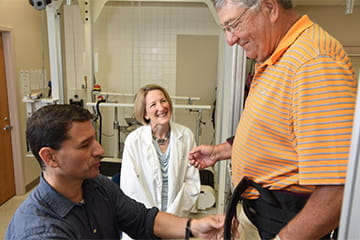The musculoskeletal system is an essential component of human health. In addition to providing the body with structure and the means for movement, the musculoskeletal system acts as endocrine system, stimulated by exercise, interacting through biochemical signaling with other organs in the body.
Exercise, working through muscle and bone interactions, plays an important role in the maintenance of health. Lack of exercise leads to obesity and increased complications such as diabetes and metabolic disease.
As people age, they face new challenges in maintaining musculoskeletal health, as the interactions between muscle and bone are complicated by the aging process. As the population ages, the conditions of sarcopenia, osteoporosis and arthritis will increase as will hip and knee replacements.
Musculoskeletal disorders are the leading cause of disability in the US, with enormous impact on quality of life and longevity. They encompass a broad range of conditions that impair normal activity due to injury, pain or disease of the bones, joints, ligaments, muscles, and tendons. Many of these disorders are associated with, or made more complex by the aging process. IU School of Medicine has developed a comprehensive team of researchers and clinicians working to better understand the science and improve care and treatment of these disorders.




